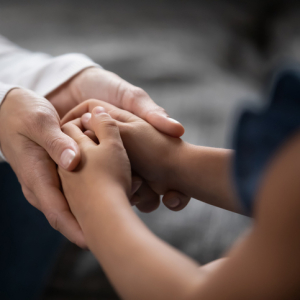We have good tools to address the pandemic in youth mental health. Let’s use them.
 We are just beginning to appreciate the long-term impact of the past two years on youth mental health—and especially for children and adolescents. But we already know that lockdowns, isolation, and uncertainty have contributed to increases in anxiety and depressive symptoms and that parents have been pushed to the breaking point as the crisis disrupts their fragile support networks.
We are just beginning to appreciate the long-term impact of the past two years on youth mental health—and especially for children and adolescents. But we already know that lockdowns, isolation, and uncertainty have contributed to increases in anxiety and depressive symptoms and that parents have been pushed to the breaking point as the crisis disrupts their fragile support networks.
Not only has the COVID-19 pandemic caused mental health symptoms—it has revealed the lack of basic support for the emotional health of our children, who as a group are underserved by current systems. In a recent report on the state of youth mental health, noting the disproportionate impact on marginalized communities, the Office of the Surgeon General encourages responding with a “whole of society” approach.
We, who are working at the forefront of philanthropy and child mental health, urge our peers across sectors to embrace this call to action and come together in a “whole world” approach. We need to be able to give our mental health the same attention we give our physical health, recognize that this is a universal problem, and finally remove the stigma that hinders healing. The single most important takeaway from the COVID mental health crisis is the need to build capacity to support children’s emotional health.
This isn’t an easy task. In the United States, deficits in training and workforce development in children’s mental health at all levels—at school, in the pediatrician’s office, and in mental health care settings—has been a persistent barrier to access and utilization. Seventy percent of U.S. counties don’t have a single child and adolescent psychiatrist. (The same is true for most rural areas in Greece, where we are collaborating on a mental health initiative.)
And that was before the pandemic. In the same way that COVID revealed weaknesses in our pandemic preparedness, it also revealed weaknesses in our mental health care system, which has historically ignored children almost completely and is still woefully underdeveloped. The risks of untreated mental health problems are significant and long-lasting—including higher rates of continued mental health disorders, school dropout, family dysfunction, social isolation, and suicide. Yet two-thirds of individuals with mental health disorders never get the treatment they need.
The mental health crisis shares another similarity with the coronavirus pandemic: It is global and has a disproportionate impact on marginalized and underresourced communities. According to the Child Mind Institute’s 2021 Children’s Mental Health Report, Black and Hispanic/Latinx teens are more likely than white teens to express concerns about pandemic-related mental health challenges. In Greece, the Stavros Niarchos Foundation’s (SNF) Health Initiative has seen that households in remote areas, refugee and migrant populations, and Roma are less likely to have access to adequate mental health care. There is a critical, global need to invest in access to evidence-based mental health care for all children and adolescents—particularly those most at risk.
When we listen to the needs of the people on the ground who are awake to the barriers and inequalities present, we hear calls for capacity building. The Child Mental Health Initiative (CMHI), a new joint initiative between the Child Mind Institute and SNF that is part of the latter’s Health Initiative in Greece, hopes to do just this: to expand capacity for mental health support for children and youth in Greece.
The CMHI aspires to reinforce and extend the critical work done by mental health and child protection providers across the country. Through a collaborative, interdisciplinary model between the institute and regional teams of Greek professionals specializing in child mental health and psychosocial care, the program aims to increase care access, capacity, and resources while developing a country-wide network and improving mental health literacy and awareness. By collaborating and bringing together international and local expertise, our initiative is using field-leading research to build robust and accessible mental health support for young people across Greece.
We see this capacity-building effort in Greece as a blueprint that can be applied across Europe and potentially around the world.
This work is not optional. Organizations like ours must recognize that addressing challenges facing children and young people is both an immediate priority and a long-term commitment. Governments and NGOs can play their part by sharing best practices and openly communicating with the local professionals and communities who utilize this care.
Whether it’s COVID or mental health, public health crises require sustained international collaboration to determine the best ways to direct resources and build capacity for preventing further harm. We need to demonstrate a common will to come together across borders and agree that access to mental health care is an area we cannot be divided on. As Surgeon General Vivek H. Murthy writes: “It would be a tragedy if we beat back one public health crisis only to allow another to grow in its place.”







